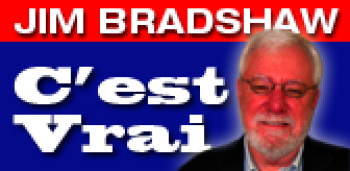
Jim Bradshaw: How a shipwreck loosened Spain's grip on Louisiana
On Jan. 11, 1784, the Spanish ship El Cazador left Veracruz, Mexico, for New Orleans, under the command of Capt. Gabriel de Campos y Pineda. It was carrying 19 tons of newly minted silver coins.
It was almost to the Crescent City when it ran into a storm and sank not far from the mouth of the Mississippi River. That storm not only changed the course of El Cazador, but some people say it could have changed a big hunk of Louisiana history.
At that time, New Orleans was the capital of Spanish Louisiana and King Carlos III was sending the 400,000 silver pesos and 50,000 pesos worth of smaller coins from the Mexican mint to pay his soldiers and government officials here and to replace the paper money, a lot of it counterfeit, that was being used in Louisiana.
The story came to light in 1993, two centuries after the fateful shipwreck. On Aug. 2, Jerry Murphy, captain of the trawler Mistake, dropped his nets in the Gulf about 50 miles south of New Orleans. When he pulled them back up, they looked like they were filled with rocks.
It turned out to be really nice rocks. They were piles of coins that had been fused together underwater.
It didn’t take long for Murphy’s uncle, Jim Reahard of Grand Bay, Ala., who was Mistake’s owner, to get in touch with a lawyer and file a claim on the wreck. He also hired Robert Stenuit, a naval historian based in Brussels, to see what he could find out about the wreck.
Stenuit rummaged through old Spanish records to identify El Cazador, and, importantly, to determine that the ship was in international waters (so not subject to state or federal salvage regulations) and was too old for the Spanish government to make a claim.
As it turned out, a good Powerball ticket would have been more valuable than El Cazador’s horde. But the discovery also raised claims that the sinking was part of a train of events that at least influenced our history, maybe actually changed it.
That story goes like this:
When El Cazador set sail from Veracruz, Louisiana was becoming harder to manage from faraway Spain and was getting so expensive to maintain that King Carlos and his advisors were beginning to wonder if it was worth the cost. If El Cazador had made it to New Orleans, the money it carried would have gone a long way toward solving Spanish financial woes and King Carlos would have probably held on to the territory for at least a bit longer.
But the money didn’t make it to the city and Spain jumped at Napoleon’s offer in 1800 to a land swap that put Louisiana back into French control.
At the time, Napoleon had big ideas about creating a French empire in North America, and might have done it except for a slave uprising in Haiti at the same time that another of a long secession of squabbles between England and France was brewing in Europe.
Napoleon couldn’t afford to fight in Haiti and Europe at the same time; or even in Europe by itself.
He was looking for a way to build up his war chest just at the time that President Thomas Jefferson decided that the United States needed control of New Orleans and the Mississippi River.
According to that version, a realm was lost for want of a coin. Without the lost money, Spain couldn’t afford to keep Louisiana and gave it back to France; Napoleon couldn’t keep it, either, and sold it to the United States.
Unfortunately, historians such as Paul Hoffman of LSU say that while that sounds like a good story, it didn’t happen that way.
In an interview in 1994 with Janet McConnaughey of the Associated Press, Hoffman said New Orleans shopkeepers probably got hurt worse than the Spanish government.
“The laundresses and boardinghouse keepers and tavern keepers — folk who extended credit to soldiers — would have had to wait for another year (to get paid),” he said. “It almost certainly did not have any effect on Spain’s decision to give up Louisiana ... which had to do with its position in Europe and diplomacy and warfare and other reasons.”
He’s an expert on Louisiana colonial history and is probably right.
Still, the made-up version makes a pretty good yarn — and I like to think it could be just a little bit true.
A collection of Jim Bradshaw’s columns, Cajuns and Other Characters, is now available from Pelican Publishing. You can contact him at jimbradshaw4321@gmail.com or P.O. Box 1121, Washington LA 70589.
- Log in to post comments
